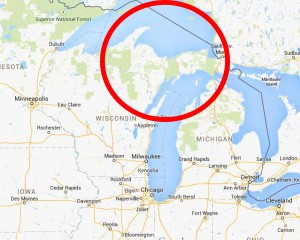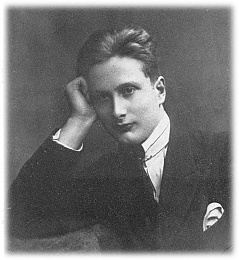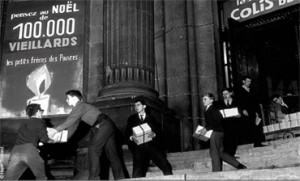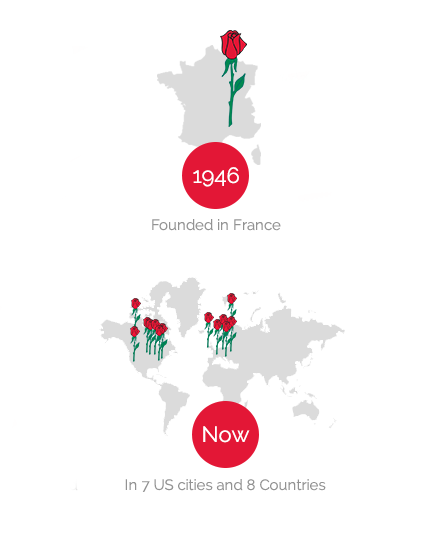Our History
 Our History
Our History
In 1982, the Upper Michigan Chapter began in Houghton County under the direction of Mike Aten. We began by recruiting 120 volunteers to help us reach out to 70 elderly friends with informal dinners, home visiting, and firewood deliveries.
Since then, we have steadily grown, expanding into five counties in the western U.P. including Houghton, Keweenaw, Baraga (2001), Ontonagon (1987), and Marquette (2013). The Upper Peninsula is characterized by long, severe winters with an average snowfall of more than 250 inches—a harsh climate for the home-bound elderly. Ours is the only rural program of Little Brothers in the country, and we located here because of the tough climate, the region’s high proportion of elderly people, high rates of poverty, lack of family support, and shortage of services for the elderly. These conditions continue to today, though we now serve over 1,300 elderly friends, and utilize between 1,300-1,400 volunteers per year.
 Armand Marquiset was born on September 29, 1900 in the château of Montguichet near Paris. Thanks to his parents and grandparents he had an agreeable childhood. As a youth he was shy and not an outstanding student although he was interested in music and studied with Nadia Boulanger.
Armand Marquiset was born on September 29, 1900 in the château of Montguichet near Paris. Thanks to his parents and grandparents he had an agreeable childhood. As a youth he was shy and not an outstanding student although he was interested in music and studied with Nadia Boulanger.
Early in the 1920s he and his grandmother, Madame de Laumont, visited less well off families who had lost sons in the war. This was the first time that this young bon vivant was confronted with genuine poverty.
His life from 1920 to 1930 was full of contrasts. In 1925 he returned to his Christian faith and at the same time, hosted regular parties at his splendid villa near Honfleur. On the one hand he cavorted with Hollywood stars and on the other he often visited the monastery Solesmes to pray and reflect.
The death of his grandmother in 1930 gave him a shock that had far reaching consequences.
He said:
This death will change my life … I can no longer compose music. I contacted Nadia Boulanger and told her that I had decided to abandon my music and involve myself in service to the poor.
 He began his humanitarian work by preparing meals for homeless people through Oeuvre de la mie de pain, the “breadcrumbs” Organization. He then founded the organization Pour que l’esprit vive (That the Spirit shall Live) in support of unemployed artists. He also founded les Amis de la banlieue (The Friends of the Suburbs) in order to assist the poor children of the Parisian suburbs.
He began his humanitarian work by preparing meals for homeless people through Oeuvre de la mie de pain, the “breadcrumbs” Organization. He then founded the organization Pour que l’esprit vive (That the Spirit shall Live) in support of unemployed artists. He also founded les Amis de la banlieue (The Friends of the Suburbs) in order to assist the poor children of the Parisian suburbs.
However, Armand Marquiset longed for a larger organization that would encompass all of his charitable activities. Gradually the idea of “petits frères” took shape in his mind. In Paris on July 7, 1939, while at prayer in Notre Dame Cathedral, Marquiset had a mystical vision that gave birth to the Little Brothers: “I saw Little Brothers,” he said, “spreading across the earth igniting, little fires of love.”
But the outbreak of World War II caused him to set these plans aside in the interest of more pressing needs. In 1939 he therefore started Servir (To Serve) through which he relocated the children of active soldiers to rural areas. In Lyon he assisted refugees from Alsace Lorraine through Secours national and he organized the provision and distribution of food with the help of Lyon-Charitable that can now offer up to 70,000 meals per day. Furthermore, he spread his influence and assistance to Algeria and Spain.
At War’s end, Marquiset returned to the idea of Little Brothers. However, after observing and hearing about post-war conditions in Paris, he decided to focus the effort on elderly people: “1945 was such a precarious time for elderly people… (it)… became the most pressing problem. The war brought them poverty…and it became critical to help them, especially to help them continue living in their homes – the difficult situation presented challenging conditions.” For Marquiset, the spiritual needs of these elderly people, left alone and isolated by the war, were even greater than their material needs.
“The greatest poverty,” he said, “is the poverty of love.”
He decided to help these needy people, calling them his “friends.” He began alone, working out of a rented apartment in a poor section of Paris, visiting the elderly poor. To them he brought sumptuous meals and flowers, which expressed his affection and love for them. He summed up his mission with the motto, flowers before bread, which reminds us that help for the needy must be animated by love.
Marquiset’s powerful example of love and service soon attracted many followers, both volunteers and donors. The Little Brothers began to offer beautiful Christmas celebrations, acquired palatial estates where they offered vacations for their elderly friends, and in time founded various branches of the organization within and outside of France.
 Armand dedicated himself to this “adventure in love” for 20 years. After a 1964 trip through India during which he became deeply troubled by the extreme poverty he witnessed, he created Les Enfants du Tiers Monde(Children of the Third World). He withdrew from leadership of Little Brothers in order to found Frères des Hommes (Brothers of Men), an organization that has spread to many developing countries on three continents.
Armand dedicated himself to this “adventure in love” for 20 years. After a 1964 trip through India during which he became deeply troubled by the extreme poverty he witnessed, he created Les Enfants du Tiers Monde(Children of the Third World). He withdrew from leadership of Little Brothers in order to found Frères des Hommes (Brothers of Men), an organization that has spread to many developing countries on three continents.
In 1969, a heart attack caused him to give up leadership of Frères des Hommes. This event, however, did not prevent him from founding yet another charitable organization, Frères du ciel et de la Terre (Brothers of Heaven and Earth) in 1972, with the mission of helping homeless people.
Up until his death on July 14 1981, in Burtonport, Ireland, he continued to involve himself with his fellow mankind.

